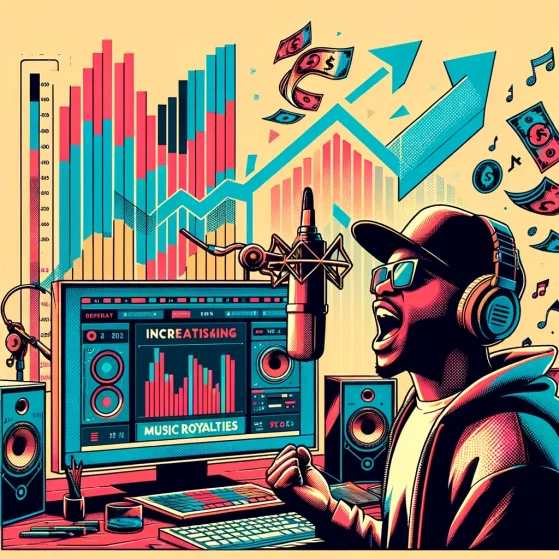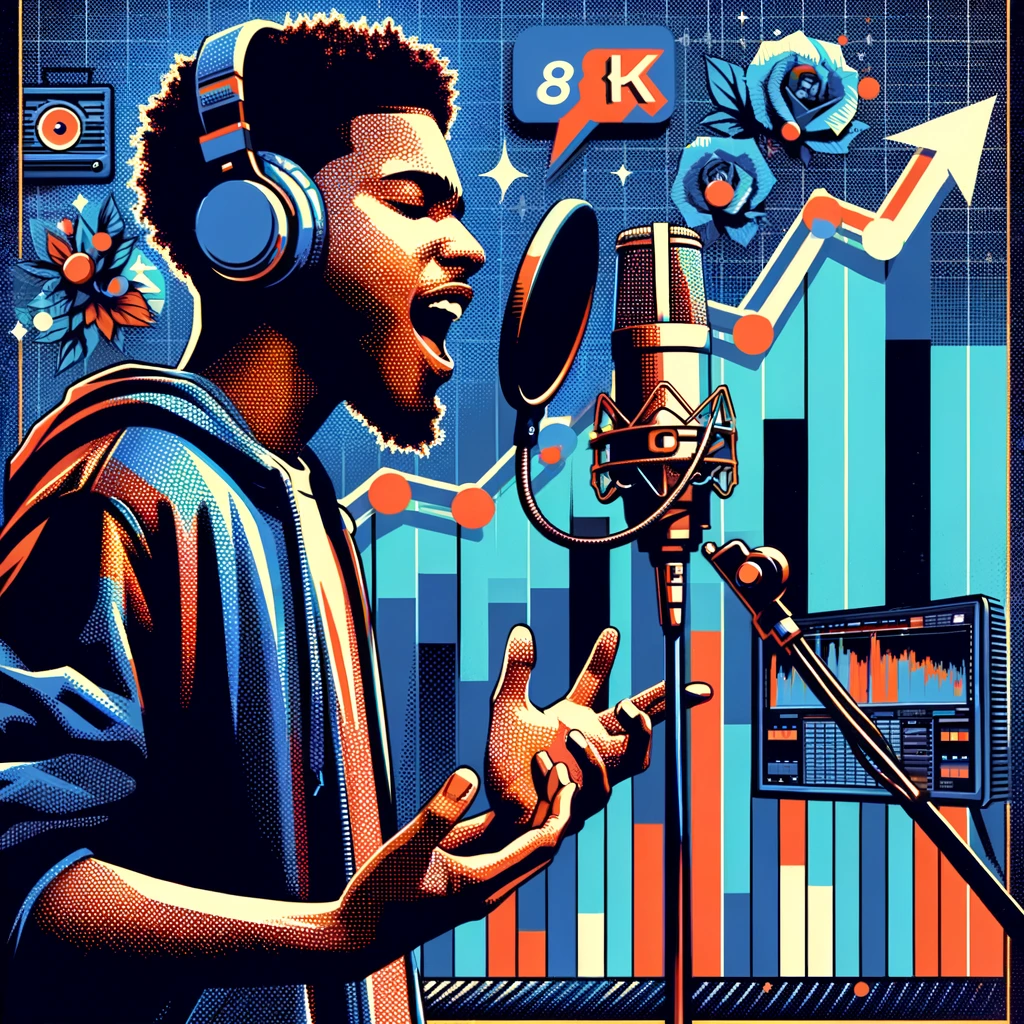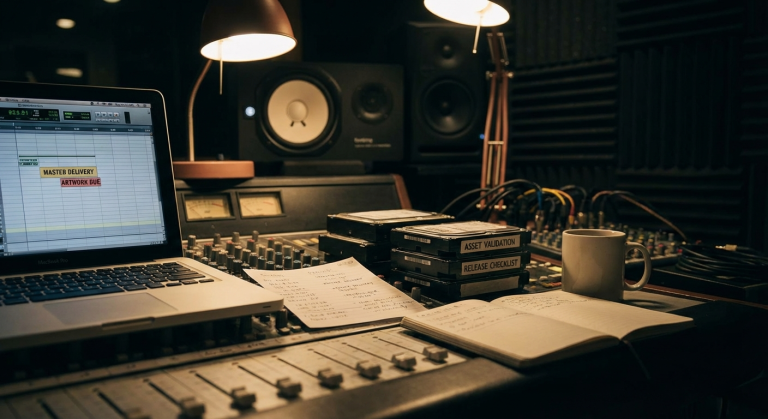Understanding the Basics of Music Publishing Rights
Music publishing rights constitute a complex but essential aspect of the music industry. Three key elements define these rights: copyright, royalties, and licensing arrangements.
Understanding Music Copyright
At its core, music copyright is the legal protection provided to the creator of an original piece of music. This form of intellectual property protection covers both the composition (melodies, lyrics) and the sound recording. Basically, it gives you the right to control the use of your music by others. Copyright law varies globally, but primarily, the moment a piece of music is written down or recorded, it’s protected by copyright law.
Decoding Royalties in Music Publishing
Royalty payments are essentially the income generated from the exploitation of music copyrights. There are several types of royalties, including mechanical, performance, and synchronization royalties. Mechanical royalties are earned when a song is reproduced, such as on a CD or digital download. Performance royalties are earned when a song is performed publicly, like on the radio, in a concert, or even in a restaurant. Synchronization royalties are earned when a specific song is paired with visual media like movies, commercials, or video games.
Licensing: The Key to Music Publishing
Licensing agreements are what make it feasible for artists to earn money from their music. When you license your song to someone else, you grant them the rights to use your music in a certain way, often in exchange for specified royalties. Common types of music licenses include mechanical licenses, sync licenses, performance licenses, and print licenses. Each one of these licenses allows different kinds of uses of your music, usually with differing payment structures.
Understanding your publishing rights will give you more control over how your music is used and how you get paid for those uses. It’s a complex field with many variables, but with a good grasp of the basics, you’ll be better equipped to navigate this part of your music career.
The Different Types of Music Publishing Rights
Understanding Mechanical Rights
Mechanical rights refer to the permission to reproduce and distribute copyrighted music on various formats such as CDs, digital downloads, or streaming platforms. Originally, these rights were created for player piano rolls. However, with the evolution of technology, they have expanded to cover music reproduction in all forms. The copyright owner typically enjoys the exclusive right to reproduce their music. Therefore, anyone who wishes to use a copyrighted piece of music must seek license from the copyright holder.
The Scope of Performance Rights

Performance rights relate to the public display or performance of a piece of music. These rights come into play any time a song is performed publicly – be it live at concerts, over the radio, on television, in a restaurant, or even when played on an online streaming platform. Copyright owners of the music usually grant performance rights to performing rights organizations (PROs), who subsequently manage licensing, tracking performances, and distribution of royalties.
Examining Synchronization Rights
Synchronization rights, often termed as ‘sync’ rights, pertain to the use of copyrighted music in synchronization with visual media content. This includes any format where music is synced with moving images, such as films, commercials, video games, YouTube videos, and TV shows. Specifically, sync licenses are required when a song is used in connection with a film, TV show, commercial, or other visual production. They are separate from and in addition to mechanical and performance rights.
The Importance of Music Publishing Rights for Artists
Why Artists Should Pay Attention to Music Publishing Rights
Music publishing rights are crucial for artists because they go hand-in-hand with the creative and commercial success of their work. When an artist composes or records a song, it becomes their intellectual property. By obtaining music publishing rights, artists can legally protect their songs from unauthorized use, ensuring that they control the manner and context in which their compositions are utilized.
Moreover, music publishing rights also enable artists to make money from their craft. Whenever their music is downloaded, streamed, performed live, or even played in a restaurant or a radio station, artists earn royalties. The distribution of these royalties is often complex and handled by performing rights organizations (PROs) like ASCAP, BMI, or SESAC, which collect and distribute these earnings to the rightful owners. Without proper understanding and management of publishing rights, artists’ income can be significantly reduced.
Legal Protections Afforded by Music Publishing Rights
In addition to financial benefits, music publishing rights serve as an essential legal tool. They provide control over how an artist’s music is used and protect against copyright infringement. When someone uses an artist’s music without permission, whether for profit or non-profit purposes, they violate the artist’s copyright. These violations can lead to costly legal disputes, but, if artists or their publishers have properly managed their rights, they are in a stronger position to fight copyright infringements.
If artists sign their publishing rights over to a music publisher, the responsibility of identifying and taking legal action against copyright offenders often falls on the publisher’s shoulders. In return, the publisher takes a percentage of earnings from the artist’s music but also works proactively to promote the artist’s work and negotiate contracts in their best interest.
The Role of Music Publishing Rights in Career Growth

It’s evident that music publishing rights play an integral role in an artist’s career growth. With the right management, these rights can open doors to numerous opportunities such as collaborations, sync deals for commercials or movies, and more. To many artists, their songs are their business cards – with each song being a potential source of income or exposure.
Furthermore, retaining control over music publishing rights allows artists to shape their careers according to their vision. They retain the freedom to decide where and how their work is used, preserving their artistic integrity and public image. At the same time, they also have the potential to earn recurring revenue, ensuring long-term sustainability of their career.
Therefore, it is crucial for artists to understand and manage their music publishing rights effectively. A comprehensive understanding of these rights can protect their creations, maximize their earnings, and contribute significantly to their career longevity.
How to Protect and Monetize Your Music Publishing Rights
Understanding Your Music Publishing Rights
Before monetizing your music publishing rights, it’s essential to understand what they are. When you create a piece of music, you automatically own the copyright to that composition. This copyright is divided into two main types: the right to the song’s composition and the right to its recording. The former is called publishing rights. These rights include the ability to reproduce, distribute, perform publicly, and create derivative works from your music. Understanding these rights is the first step towards protecting and monetizing them.
Protecting Your Copyrighted Material
Securing your music publishing rights involves legally ensuring you have ownership over your compositions. While copyright is automatically granted when a piece of work is created, proving it can be tricky. Therefore, it’s advisable to register your music with the U.S. Copyright Office or an equivalent body in your country. This process provides a public record of your ownership, strengthening your legal standing in case of a dispute.
Additionally, join a Performing Rights Organization (PRO). A PRO collects royalties on behalf of artists whenever their music is performed publicly; this includes play on radio, television, concerts, and even restaurants. In the U.S, ASCAP and BMI are two of the major PROs.
Monetizing Your Music Publishing Rights
To monetize your music publishing rights, you need to exploit the various revenue streams these rights offer. Licensing your music for use in movies, TV shows, advertisements, or video games is one way to do this. Every time your music is synchronized with visual media, you’re entitled to a synchronization fee.
Consider working with a music publisher or publishing administrator. They can help manage your rights and negotiate licensing deals on your behalf. Remember, these professionals make money only when you do—they take a percentage of the income generated from your music, so they’ll be motivated to get the best deals.
Another way is through performance royalties, which are collected by your PRO whenever your music is performed publicly. Mechanical royalties are another source of income; these are paid when your music is reproduced in forms such as CDs or digital downloads.
Also, leverage the power of digital platforms. Ensure your music is available on all major streaming platforms like Spotify, Apple Music, and YouTube. These platforms pay royalties every time someone streams your music.
Exploring these avenues will help you monetize your music publishing rights effectively. Remember, protecting and monetizing your music is not just about making money, but also about maintaining control over your artistic work and respecting its value.
Common Pitfalls and Misconceptions About Music Publishing Rights
Misinterpretation of different rights
One of the common misconceptions about music publishing rights is the confusion between the different types of rights. Many artists often confuse mechanical rights with performance rights, leading to misinterpretation and possible infringement. Mechanical rights allow a person or a company to reproduce a song on CDs, vinyl, or digital media. On the other hand, performance rights allow a person or an entity to perform a song in public places. Understanding the distinction can prevent misuse and help artists protect their work effectively.
Ignoring the role of a music publisher
Another significant pitfall revolves around underestimating the role of a music publisher. Some artists believe that they can handle all the aspects related to their music by themselves. They sometimes overlook the potential assistance a publishing company would provide. Music publishers are instrumental in managing works, handling administrative tasks like copyright registration, collection of royalties, and licensing negotiations. They also play an important role in promoting a songwriter’s works and developing new business opportunities. By not engaging a music publisher, an artist might lose out on these professional benefits.
Risk of copyright infringement
Often, artists unknowingly commit copyright infringements due to lack of knowledge about music publishing rights. This usually happens when they use copyrighted music without seeking proper permissions from the rights owner. It is essential for artists to understand that using any copyrighted work, whether it’s a complete track or a part of it, without permission constitutes a legal violation. Artists should always seek relevant licenses to avoid the repercussions of copyright infringement.
Failing to register copyrights
Finally, a common pitfall among many artists is the negligence towards registering their work with a copyright office. Some creators assume that their work is automatically protected once it’s created, which is not entirely incorrect but offers limited protection. However, without formal registration, legal claims against copyright infringement could be severely weakened. Registering a copyright grants the owner an official claim to their work, which can be extremely beneficial in any disputes related to copyright infringement.
Looking for a trusted and knowledgeable agency to help market your music career?
Contact us at + 1 626 872-5151 or info@flourishprosper.net
Or Checkout our website at flourishprosper.net




